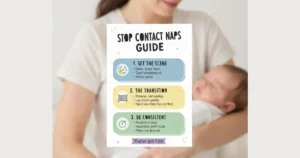Parenting can be both thrilling and nerve-wracking. Brushing up on some basic parenting techniques may help alleviate those emotions while improving family health overall.
Children learn much by watching their parents. Setting an example with appropriate, respectful behavior will set an excellent precedent for your kids to follow; on the other hand, acting negatively toward them can have just as damaging an effect.
Be a Positive Role Model
Every child requires positive role models in their lives. Role models may come from various sources; most parents tend to serve as their children’s primary role model and will model their behaviors, beliefs and attitudes after them.
Parents can be role models by leading healthy lives and respecting themselves and their own personal space. By making time for themselves regularly and encouraging their children to do the same.
Parents can serve as positive role models by being consistent in their behavior and enforcing consequences for inappropriate actions. When discussing with their children what has caused inappropriate actions, friendly but firm communication styles should be used while reminding them about any consequences agreed upon for actions that violated this agreement. Parents must also follow through with any agreed upon consequences as promised by agreeing upon.
Be Consistent
Anyone who has attempted to reach a challenging goal knows the importance of consistency is. From going to the gym regularly and losing weight to finishing projects on time, sticking with something for an extended period will ultimately bring success.
Parenting follows this same rule, so be consistent in your discipline of your children so they know what to expect and the repercussions if they break any of the rules.
However, you must find ways to be consistent that work for your lifestyle and not someone else’s plan. If someone else’s plans don’t work with your life then finding another means of staying on track may be necessary to remain consistent.
Be Flexible
Parents need the flexibility to adapt to unexpected events and circumstances, such as scheduling activities at times when your kids are overtired or hungry; without it, their performance could suffer significantly. Furthermore, flexibility also involves being ready to compromise; children benefit greatly from understanding that both their mother and father have needs which sometimes need meeting differently than expected.
When your child becomes upset that Dad can’t read him his books at bedtime due to an impending baseball game, telling them that Mommy will step in can help ease their transition. Furthermore, this teaches your children that mistakes in life are natural and understandable.
Let your ninjas know when they exhibit flexible thinking despite disappointment or frustration by commending or rewarding them for it.
Be Respectful
Respectful parents teach their children to be kind and generous toward themselves, other people, and the world at large. They validate big emotions like sadness or anxiety for their kids to process while working with them to find peaceful solutions to problems together.
Idealistically, parents should remain neutral during family disputes and assist their children when necessary in finding solutions on their own. According to McCready, this method teaches children the value of respecting others while listening when disagreement arises.
Respectful parents recognize and support their children’s bodily autonomy, including making decisions regarding circumscision, ear piercing and hair cuts without their parents’ interference or approval. Furthermore, respectful parents don’t criticize or criticize their kids’ bodies or appearance; instead they celebrate and praise their progress as adults.
Be Patient
Patience can be challenging to cultivate, but practicing it can help keep your emotions under control and give those around you room when life throws curveballs your way. Patience allows us to accept that some events don’t always unfold according to plan; and allows us to give ourselves and others some leeway when things take unexpected turns.
Patience can help reduce stress levels, which is essential for optimal physical health. In addition, people who practice patience tend to feel more positive and hopeful about life according to one study.
If you are having difficulty remaining patient, try focusing on what matters to you most in terms of long-term goals and try not to let anything niggle at you in the moment. Meditation or physical activity could help, too.
Be Self-Disciplined
Instead of only giving negative reinforcement for good behavior, praise should also be used to foster independent children who feel capable of handling tasks without constant reminders from their parents. This helps build self-assurance among them as they see they can accomplish tasks successfully without your guidance.
Self-disciplined children respect authority figures and consider others’ feelings before making decisions. Furthermore, these children can prioritize their responsibilities efficiently: prioritizing schoolwork and household duties over socializing with friends or participating in extracurricular activities.
Fostering self-discipline in kids is an ongoing journey. Some children, particularly those with biological issues such as impulsivity, require extra help in learning self-control; however, effective parenting techniques can give children the tools and confidence they need to meet life’s challenges successfully – at any age!
Be Prepared
Parents can become overwhelmed with their new role, so don’t be shy about asking friends and family for assistance when needed. Don’t hesitate to seek outside help when necessary.
Children learn by mimicking their parents, so it is crucial that you model behavior you want them to emulating. Avoid engaging in arguments in front of them and try being firm without becoming aggressive or mean.
As important, be sure to give them your full attention when they speak, prioritizing one-on-one time with them, and make a point of making one-on-one interactions a top priority. Show that they matter by giving them all of your focus. Finally, allow your teen to experience life on his/her own and learn from mistakes; although this can be hard, this is what helps children become resilient adults and independent thinkers.



